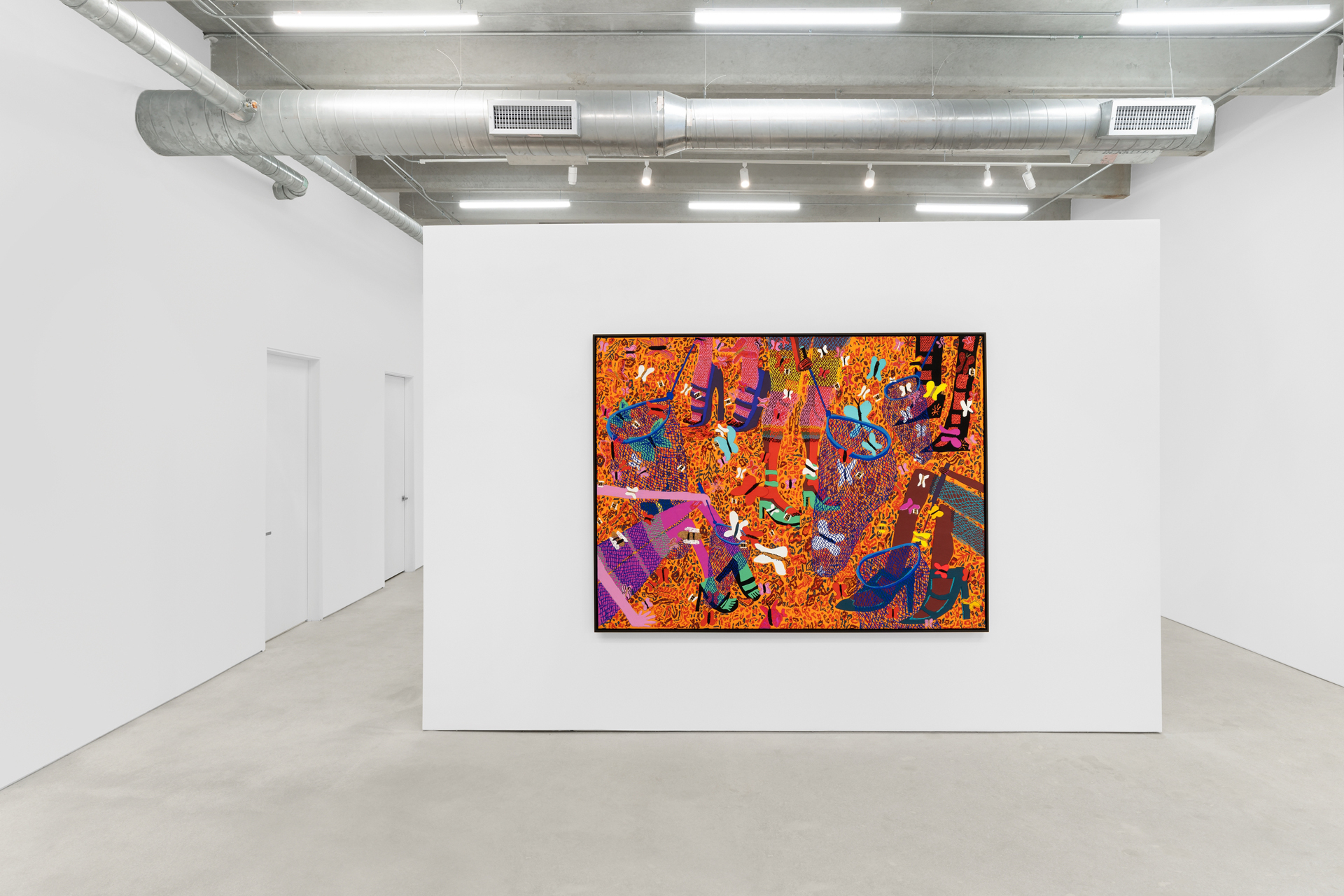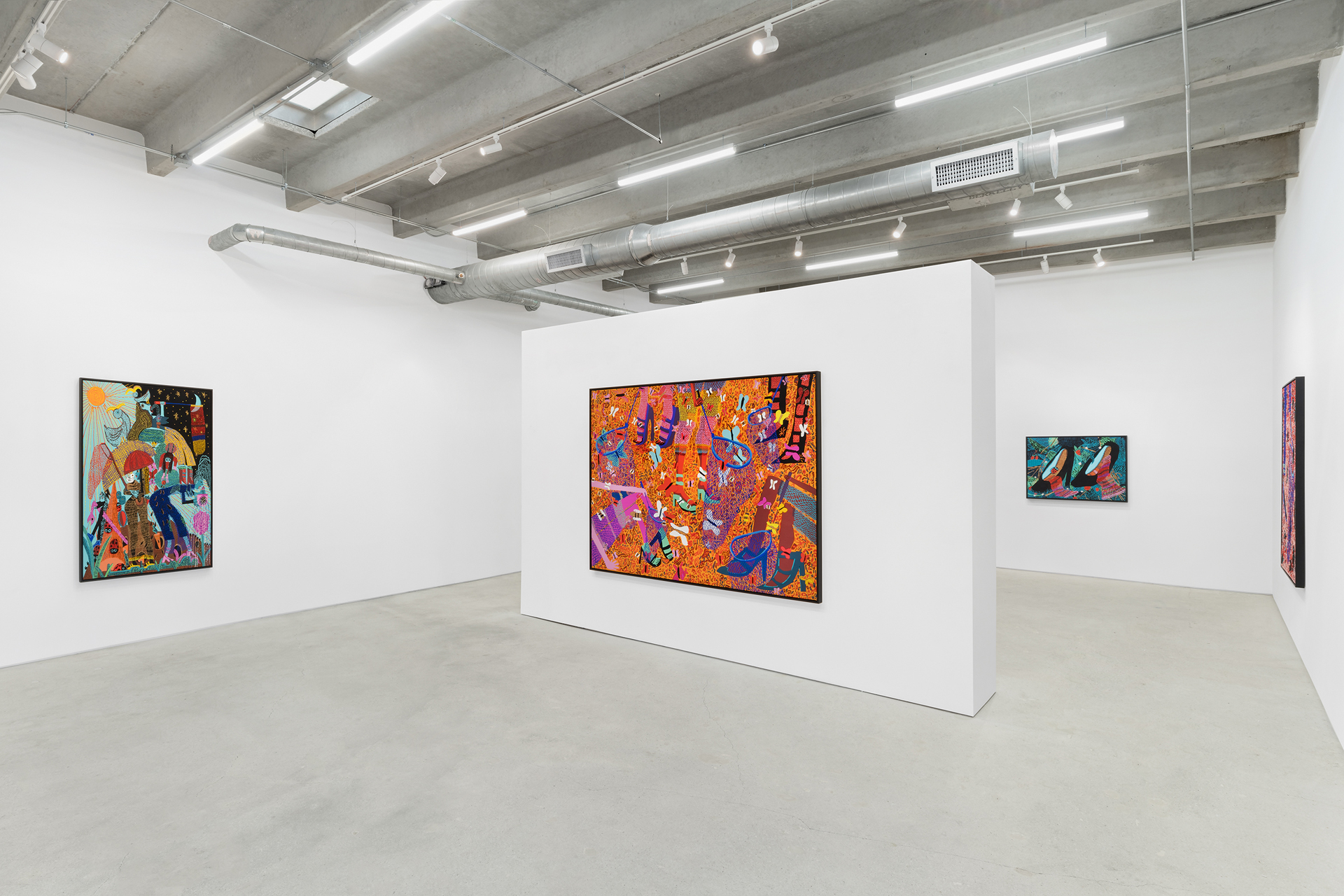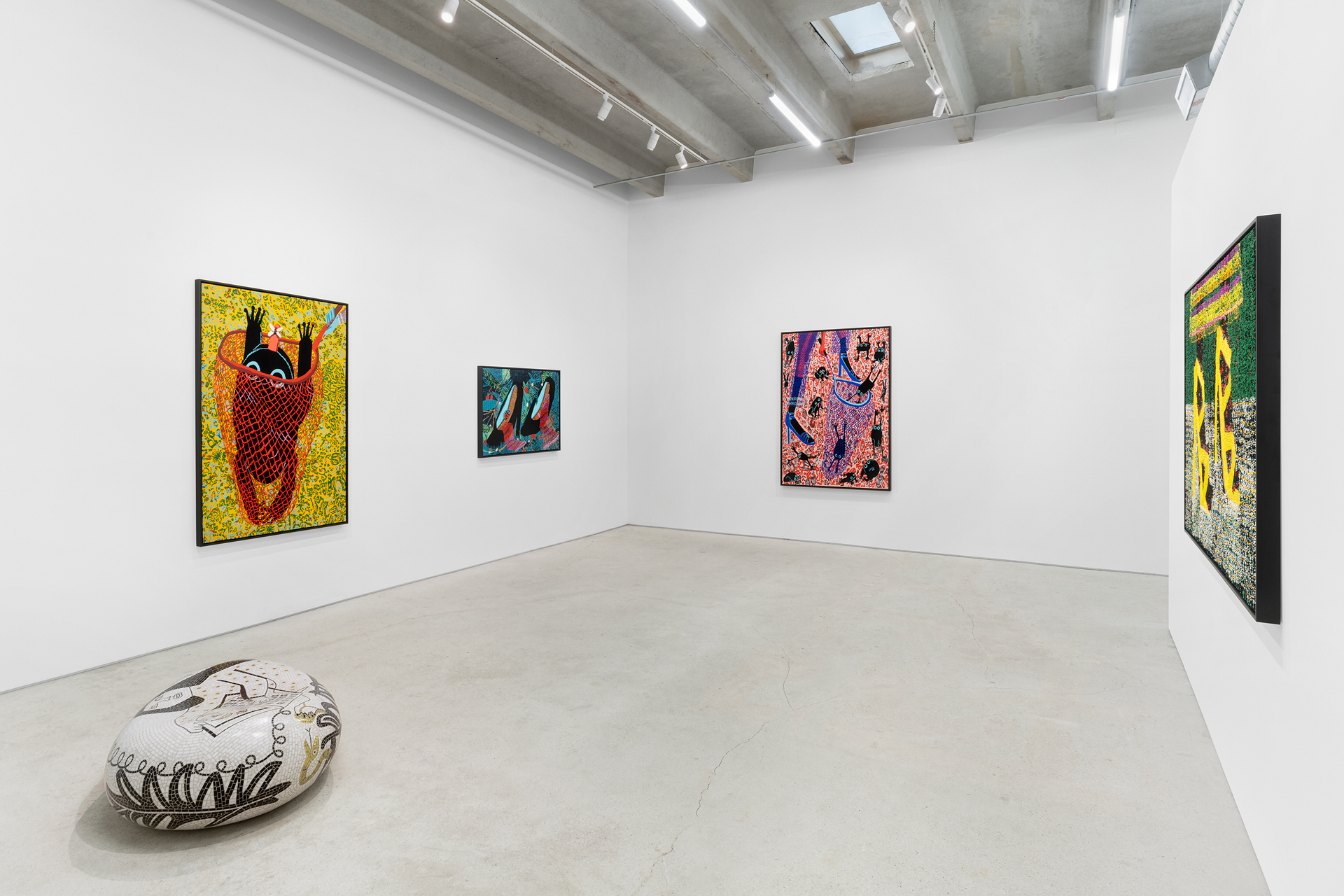Safety Net, 2025
Andrew Reed, Miami, FL






Link to Exhibition
Images by Zachary Balber
“Safety Net” suggests a guard rail against catastrophe; a final defense barrier. However, these nets are porous and their contents seem to be flying away or on the verge of escape. In Summer Wheat’s works, the net is trying to capture and hold still the ephemeral butterfly or enforce boundaries and define something constantly on the move or changing. In several works in Safety Net, the net’s smaller proportion in the composition shows its visual vulnerability over a dense, cluttered background filled with texture and objects. The net could symbolize hope and the wish to catch something desirable or strive to achieve an outcome. The drawings for this show were conceived prior to the November 2024 presidential election, but they reference this tense time with the themes of tenuous borders, a lack of security, and hope for the future. There is a sense of the unresolved in these suspended actions, and the net becomes a symbol showing the beautiful fragility of hope.
A continuation on Wheat’s recent garden theme, some of these paintings depict outdoor scenes with only glimpses of a female figure rather than the artist’s singular, totemic paintings of women. A pair of high-heeled shoes, taken from eBay listings of Barbie accessories, is sometimes all we see of the protagonists as they sweep their nets to collect what they can. Whimsical summer vacation activities like catching butterflies and frogs are the leisure activities of Wheat’s choice.
In the materiality of her work, with the acrylic extrusions ‘pulled’ through the mesh similarly to threads of textile being pulled through a weave, Wheat expounds upon the language – and lineage – of tapestry. The world-building laden in the artist’s oeuvre embodies the dramatic scenes of Medieval and Renaissance tapestries, while the intricately patterned backdrops recall modernist abstractions. Wheat’s flattening of the picture plane calls to mind the treatment of the Bayeaux Tapestry, while the playful ‘pursuit’ amidst lush foliage ties to The Hunt of the Unicorn cycle (c. 1495-1505) found in The Metropolitan Museum’s collection. That said, Wheat continues this discourse on her terms, in her own proprietary technique. In addition to this pulling through of vibrant acrylic paint through wire mesh, Wheat paints directly onto the heavily impastoed surfaces and applies further embellishments. She consequently engages with her canvas at a variety of vantages – vertically and horizontally, with the front and the verso – to crystallize her compositionally dynamic colors and forms.
In paintings like Beautiful Frogs and Caught, a figure reaches to catch frogs while they jump left and right. Amphibians inhabit both wet and dry environments, symbolizing their versatility and skill at adapting to different situations. In Beautiful Frogs, the many playful expressions of each animal represent shifting emotion. Some frogs seem eager to jump inside the net, while others just stare at it like different feelings surfacing in one’s consciousness. Caught has a masterful combination of Wheat’s textures achieved by extruding acrylic through mesh. The thicker squiggly lines of the background visually vibrate against the smooth mustard yellow backdrop and the deep black frog in a psychedelic push and pull between figure and ground.
In Sunflower Butterfly and Strawberry Butterfly, the net pattern merges with the butterfly’s wings as part of its hallucinogenic design. This repeated composition shows a figure grasping a butterfly by the wings as though the butterfly is large, powerful, and sturdy. The hypnosis of the lines draws one into the eyes which stare back with pure focus. The vibration of the color and texture repeated in the background makes these works electric, with surging energy the way a flower exudes color in the sun.
In Stuffy Faucet a woman controls what can be seen as a threatening predator, but the humorous title implies the snake makes a lousy watering can for her flower. Is it watering poison from its fangs? Is the snake spitting? Comedy teeters on the ominous. This limbo speaks to Wheat’s willingness to allow her audience to interpret her scenes, in turn provoking insight into their own psyche.
Catching Butterflies and Catching Thoughts picture the frenetic attempt at focusing during the present age of social media and fragmented distraction. Being pulled in different directions, nets and arms crisscross the background, competing for space. In both paintings, the equal treatment of foreground and background recall the nonhierarchical treatment of figures and their settings in many folk art compositions. Wheat is inspired by the simplification of skilled artisans whose crafts may not be recognized at a high level in the fine art world, but from whom Wheat draws inspiration.
Lost is a quiet night meditation. A pair of women’s shoes are removed to wander in luscious nature without a destination in mind. The discarded footwear signifies abandoning gender roles and letting go of the ‘boss lady’ mentality to reconnect with one’s inner self.
The show is roughly split in half between a warm day and a cool night color palette. The two halves merge into the painting Cycles. This work is an updated composition from prior ‘fountain’ series with a stack of figures and animals against a transitional night and day sky. The split time zone is a reference to the artist’s frequent travel, but also a post-election reminder of the cyclical nature of our world. The varied weather conditions signal inevitable change, and Wheat urges us to remember that nothing is permanent.